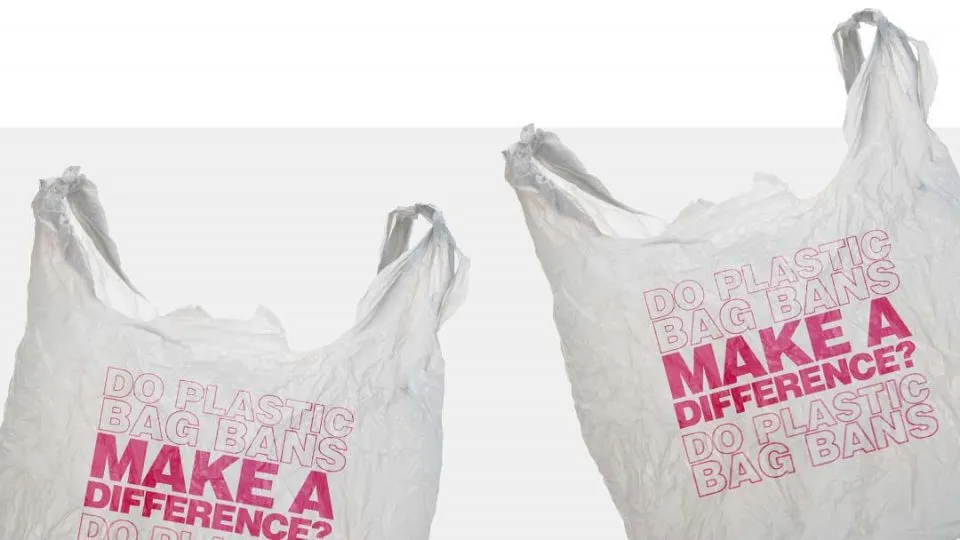
Plastic bag ban has emerged as a significant step towards sustainable agriculture. With the increasing awareness about the harmful effects of plastic bags on the environment and human health, governments around the world are taking strict measures to reduce their usage. This ban has not only led to a healthier environment but also enhanced the growth of sustainable agricultural practices.
Plastic bags are non-biodegradable, and their disposal is a major concern. When these bags are discarded, they often end up in landfills, rivers, and oceans, causing pollution and harm to wildlife. By banning plastic bags, governments are encouraging the use of eco-friendly alternatives like cloth bags or biodegradable bags, which are not only less harmful but also contribute to sustainable agriculture.
The ban on plastic bags has significant implications for sustainable agriculture. Firstly, it reduces the reliance on synthetic fertilizers and pesticides, which are often packaged in plastic containers. By promoting plastic bag alternatives, farmers are encouraged to adopt natural and organic farming methods, which have a lower environmental impact and produce healthier crops.
Furthermore, the ban on plastic bags promotes responsible water management in agriculture. Plastic bags are known to clog drains and water bodies, leading to flooding and waterlogging. By eliminating plastic bags from the farming process, water can flow freely, preventing water stagnation and improving soil fertility. This, in turn, enhances crop growth and reduces the need for excessive irrigation.
In conclusion, the plastic bag ban has a profound impact on sustainable agriculture. It not only helps in reducing environmental pollution but also encourages the adoption of eco-friendly farming practices. By promoting the use of alternative bags, the ban leads to a shift towards natural and organic farming methods, promoting healthier crops and responsible water management. As we move forward, it is crucial to continue spreading awareness about the benefits of reducing plastic bag usage and embrace sustainable alternatives for the betterment of our environment and agriculture.
- The Impact of Plastic Bag Ban on Sustainable Agriculture
- Role of Plastic Bags in Agriculture
- Environmental Issues and Plastic Bags
- 1. Pollution
- 2. Wildlife Hazard
- 3. Resource Depletion
- Plastic Bag Bans and Their Effect
- The Environmental Benefits of Plastic Bag Bans
- The Impact on Sustainable Agriculture
- Alternative Solutions for Farmers
- Benefits of Plastic Bag Ban for Agriculture
- 1. Reduced Plastic Pollution
- 2. Increased Use of Sustainable Alternatives
- 3. Improved Soil Health
- 4. Cost Savings for Farmers
- Question-answer:
- What is the purpose of the plastic bag ban?
- How does the plastic bag ban affect sustainable agriculture?
- What are the alternatives to plastic bags in sustainable agriculture?
- Does the plastic bag ban have any negative impact on farmers?
The Impact of Plastic Bag Ban on Sustainable Agriculture
The implementation of a plastic bag ban has resulted in significant impacts on sustainable agriculture. Plastic bags, often used for packaging and transporting fruits, vegetables, and other agricultural products, are no longer available due to the ban. This has forced farmers and distributors to seek alternative and more sustainable packaging materials.
One significant impact of the plastic bag ban is the increased adoption of biodegradable and compostable packaging materials. Farmers have started using bags made from materials like paper, cornstarch, and bamboo, which are not only environmentally friendly but also degrade naturally over time. These materials help reduce the accumulation of plastic waste in landfills and oceans, promoting a healthier and more sustainable agricultural ecosystem.
Furthermore, the plastic bag ban has encouraged the use of reusable packaging options in sustainable agriculture. Farmers and distributors have started incorporating reusable crates, baskets, and containers for packaging and transporting their products. This shift reduces the consumption of single-use plastic and promotes a more circular economy in the agricultural sector.
The ban has also led to innovative solutions in packaging design and engineering. With the limitations on plastic bags, farmers and distributors have been motivated to develop new packaging options that are both sustainable and functional. This has resulted in the development of packaging materials that are not only eco-friendly but also provide extended shelf life and protection for agricultural products, reducing food waste in the process.
Overall, the plastic bag ban has had a positive impact on sustainable agriculture by promoting the use of biodegradable materials, encouraging the adoption of reusable packaging options, and fostering innovation in packaging design. This transition towards more sustainable practices in the agricultural sector contributes to a greener and healthier environment for future generations.
Role of Plastic Bags in Agriculture
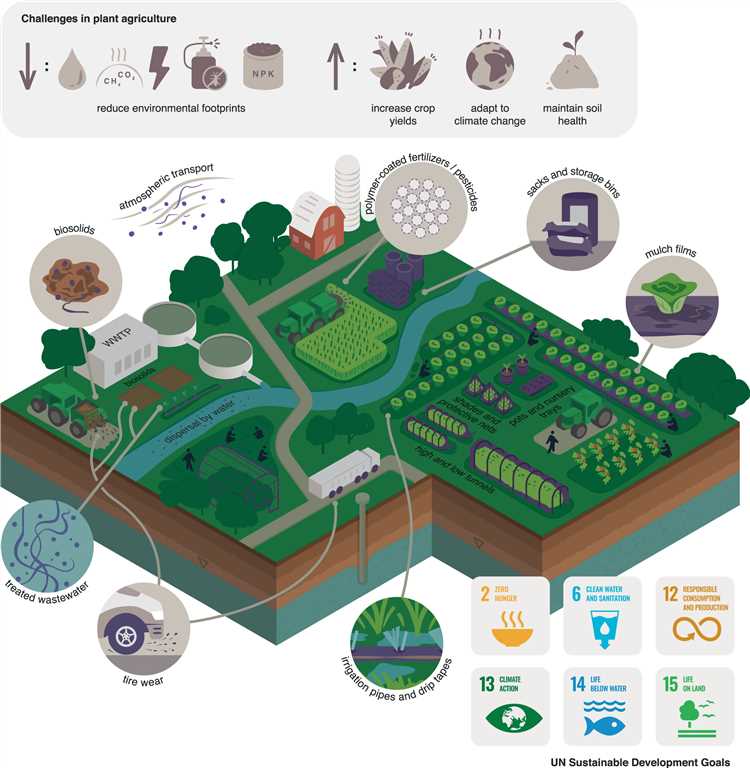
Plastic bags have played a significant role in modern agriculture practices. They have revolutionized the way crops are grown, harvested, and protected from pests and environmental factors. Plastic bags have become an essential tool for sustainable agriculture due to their durability, versatility, and cost-effectiveness.
Protection and Preservation: Plastic bags are used to cover plants and crops, creating a protective barrier against adverse weather conditions such as frost, excessive heat, and pests. This helps in preserving the quality and yield of the produce. Plastic bags also act as a shield against diseases, keeping the crops healthy and free from contamination.
Greenhouses and Tunnels: Plastic bags are commonly used to construct greenhouses and tunnels, which provide an optimal environment for plant growth. The transparent nature of the bags allows sunlight to reach the plants while trapping heat inside, creating a microclimate that supports year-round cultivation. This extends the growing season and increases crop yields.
Irrigation and Moisture Control: Plastic bags are utilized for irrigation purposes by creating mini water reservoirs around plants. This helps in conserving water as it is directly supplied to the roots, minimizing evaporation. Additionally, plastic bags are effective in preventing soil erosion and maintaining moisture levels, reducing water stress on crops.
Seedling Protection: Plastic bags are extensively used to protect seedlings during the early stages of growth. They provide a controlled environment for germination by maintaining consistent moisture levels and protecting the seedlings from extreme temperatures and pests. This ensures higher survival rates and healthier plants.
Storage and Transportation: Plastic bags are an integral part of the storage and transportation process in agriculture. They are used to pack and transport harvested crops, ensuring their freshness and preventing damage. Plastic bags are lightweight, easy to handle, and have a longer shelf life, making them an ideal choice for preserving agricultural produce.
Recyclability and Waste Management: While plastic bags have undeniable benefits in agriculture, their environmental impact cannot be ignored. The accumulation of plastic waste poses a significant threat to the ecosystem. Sustainable agriculture practices aim at reducing plastic waste by promoting the use of biodegradable or recyclable alternatives to plastic bags.
Overall, plastic bags have played a crucial role in advancing sustainable agriculture by providing protection, preserving crops, supporting year-round cultivation, and facilitating storage and transportation. However, the negative environmental consequences associated with plastic bags emphasize the need for alternative solutions that are more eco-friendly.
Environmental Issues and Plastic Bags
Plastic bags have become a major environmental concern in recent years. These bags find their way into landfills, oceans, and other natural habitats, posing a threat to wildlife and ecosystems. The following are some of the key environmental issues associated with plastic bags:
1. Pollution
Plastic bags are non-biodegradable, which means they do not break down naturally over time. This leads to an accumulation of plastic waste in the environment, causing pollution. When plastic bags end up in landfills, they can release harmful chemicals and contribute to soil and water pollution.
2. Wildlife Hazard
Many marine animals, such as sea turtles, seabirds, and marine mammals, mistake plastic bags for food and ingest them. This can lead to suffocation, digestive blockage, and even death. Plastic bags can also entangle animals, causing injuries or preventing them from swimming or flying properly.
Did you know? It is estimated that over 100,000 marine animals die each year due to plastic pollution.
3. Resource Depletion
Plastic bags are made from petroleum, a non-renewable resource. The production of plastic bags contributes to the depletion of fossil fuels, which are essential for many other industries. By reducing the demand for plastic bags, we can help conserve natural resources and reduce our reliance on fossil fuels.
It is important to note that while plastic bags have negative impacts on the environment, they can be recycled and reused. However, due to low recycling rates and improper disposal, many plastic bags still end up causing harm to the environment.
In conclusion, plastic bags pose significant environmental issues, including pollution, harm to wildlife, and resource depletion. Implementing a ban on plastic bags can help mitigate these issues and promote more sustainable practices in agriculture and other industries.
Plastic Bag Bans and Their Effect
Plastic bag bans have been implemented by many countries and cities around the globe in an effort to reduce the negative environmental impact caused by these single-use items. These bans aim to encourage individuals to shift towards more sustainable alternatives, such as reusable bags.
The Environmental Benefits of Plastic Bag Bans
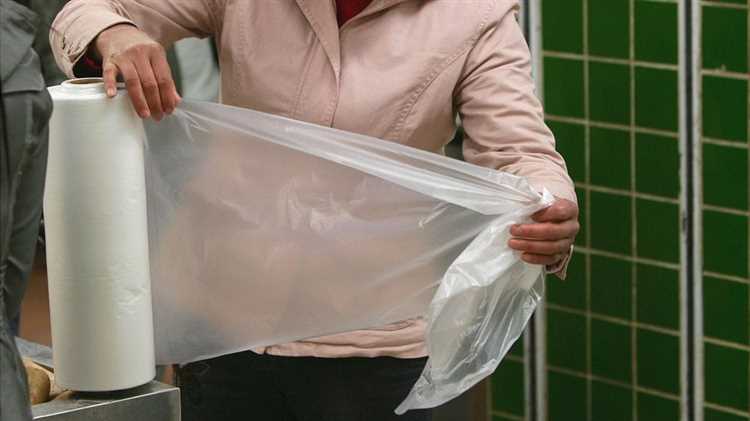
The implementation of plastic bag bans has resulted in several positive environmental outcomes. Firstly, the reduction in the production and consumption of plastic bags has led to a decrease in the amount of plastic waste entering landfills and the environment. This has significant benefits for wildlife, as plastic bags are often mistaken for food and can cause harm or death when ingested.
In addition, plastic bag bans help reduce the amount of energy and resources required to produce and transport these single-use items. The manufacturing process of plastic bags involves the extraction of non-renewable resources and the release of greenhouse gases, contributing to climate change. By using reusable bags instead, individuals can help minimize their carbon footprint and conserve valuable resources.
The Impact on Sustainable Agriculture
Plastic bag bans also have a positive impact on sustainable agriculture. The elimination of plastic bags reduces the risk of contamination in agricultural fields. Plastic bags can easily get blown away and end up in farmland, where they can negatively affect soil quality and impede the growth of crops. By banning plastic bags, farmers can ensure a safer and healthier environment for cultivating crops.
Furthermore, the use of reusable bags in grocery shopping promotes a more sustainable approach to food consumption. Reusable bags can be used multiple times, reducing the overall demand for plastic packaging and waste. This shift towards sustainable agriculture aligns with the principles of organic farming and supports environmentally-friendly practices.
In conclusion, plastic bag bans have a significant positive effect on both the environment and sustainable agriculture. They help reduce plastic waste, conserve resources, and promote healthier farming practices. By embracing reusable bags and other sustainable alternatives, individuals can contribute to a more sustainable future for all.
Alternative Solutions for Farmers
With the plastic bag ban in place, farmers are faced with the challenge of finding alternative solutions for packaging their produce. Here are some options they can explore:
- Reusablе Bags: Farmers can consider using reusable bags made of biodegradable materials such as cotton or jute. These bags can be reused multiple times and are more eco-friendly than single-use plastic bags.
- Cardboard Boxes: Another option for farmers is to use cardboard boxes for packaging their produce. Cardboard is a recyclable material and can provide protection for fruits and vegetables during transportation.
- Biodegradable Plastic Bags: Farmers can also opt for biodegradable plastic bags made from plant-based materials such as cornstarch or cassava. These bags break down more easily in the environment compared to traditional plastic bags.
- Paper Packaging: Paper packaging is another viable alternative for farmers. It is a renewable resource and can be recycled. Additionally, paper bags can be customized with the farmer’s branding, providing a more unique and personalized touch.
- Showcased Harvest: Some farmers may choose to adopt a new approach and opt for showcasing their harvest without any packaging. This can involve presenting fruits and vegetables in baskets or wooden crates, allowing customers to select their items without the need for packaging.
While these alternative solutions may require adjustments and investment from farmers, they can contribute to more sustainable agricultural practices and minimize the negative impact of single-use plastics on the environment.
Benefits of Plastic Bag Ban for Agriculture
Plastic bag bans have a number of benefits for sustainable agriculture. By reducing the use of plastic bags, farmers and agricultural workers can help to minimize the negative environmental impact associated with plastic waste.
1. Reduced Plastic Pollution
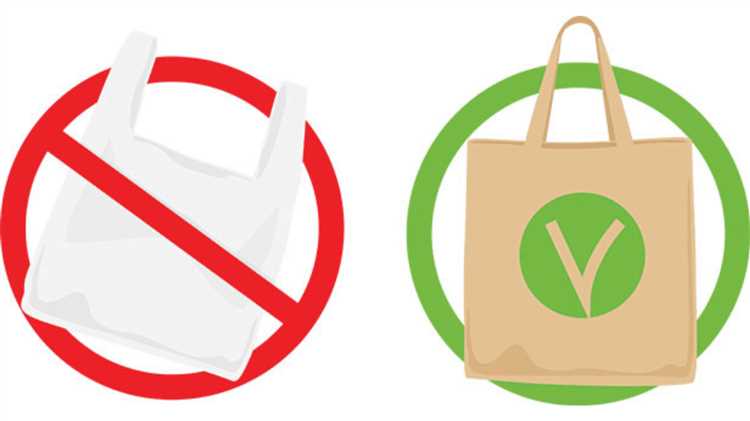
Plastic bags are a major source of pollution in agricultural areas. When not properly disposed of, they can end up in fields, rivers, and oceans, causing harm to wildlife and contaminating soil and water. By banning plastic bags, farmers can contribute to the reduction of plastic pollution, creating a cleaner and healthier environment for both plants and animals.
2. Increased Use of Sustainable Alternatives
With the ban on plastic bags, there is a greater focus on finding sustainable alternatives. This means that farmers and agricultural workers are encouraged to use eco-friendly materials such as reusable bags made from organic materials or biodegradable packaging options. These alternatives have a lower environmental impact and can contribute to a more sustainable agriculture industry.
3. Improved Soil Health
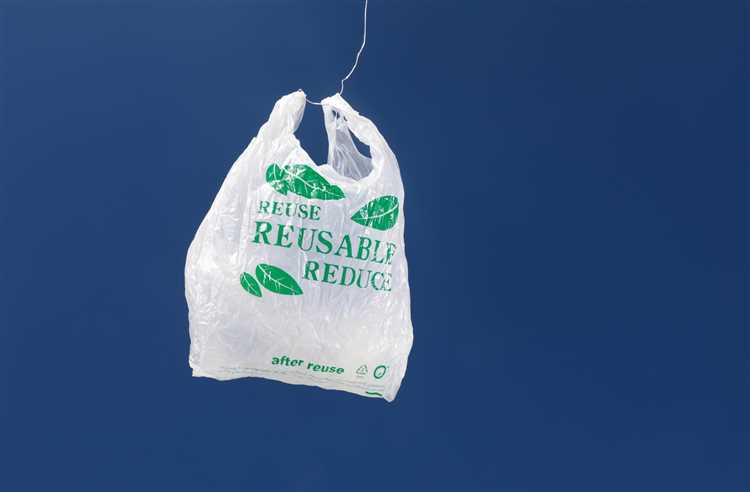
Plastic bags that end up in soil can have negative effects on its health and fertility. They can hinder water and nutrient absorption, leading to poor crop growth and reduced yields. By eliminating plastic bags from the agricultural system, farmers can improve soil health, allowing for better plant growth and higher-quality produce.
4. Cost Savings for Farmers
Plastic bags can be a significant cost for farmers, especially those who rely on them for packaging or transportation. By banning plastic bags, farmers can save money by adopting more sustainable and cost-effective alternatives. This can contribute to a more financially stable and efficient agricultural industry.
- Reduced plastic pollution
- Increased use of sustainable alternatives
- Improved soil health
- Cost savings for farmers
In conclusion, the ban on plastic bags in agriculture has multiple benefits. It helps reduce plastic pollution, encourages the use of sustainable alternatives, improves soil health, and saves costs for farmers. By taking these steps towards sustainability, the agricultural industry can contribute to a cleaner and more environmentally friendly future.
Question-answer:
What is the purpose of the plastic bag ban?
The purpose of the plastic bag ban is to reduce plastic waste and its harmful impact on the environment.
How does the plastic bag ban affect sustainable agriculture?
The plastic bag ban has a positive effect on sustainable agriculture as it encourages the use of biodegradable and reusable alternatives, reducing plastic pollution in agricultural practices.
What are the alternatives to plastic bags in sustainable agriculture?
There are several alternatives to plastic bags in sustainable agriculture, such as biodegradable bags made from plant-based materials, reusable fabric bags, and compostable packaging materials.
Does the plastic bag ban have any negative impact on farmers?
The plastic bag ban may have some initial challenges for farmers as they transition to using alternative packaging materials, but in the long run, it benefits them by promoting sustainable and environmentally friendly farming practices.